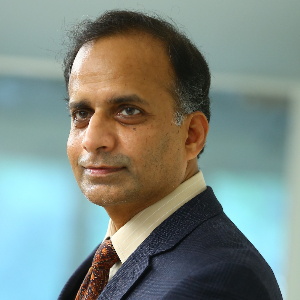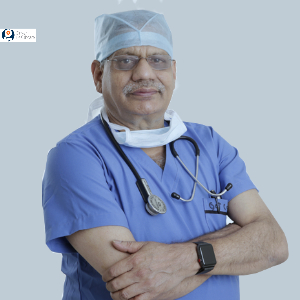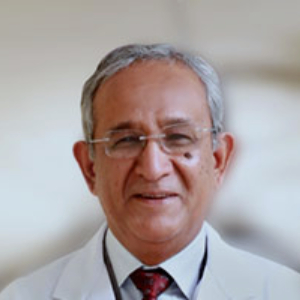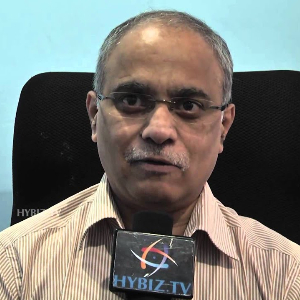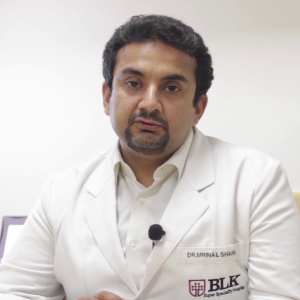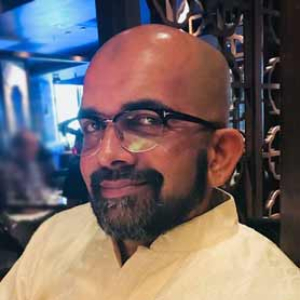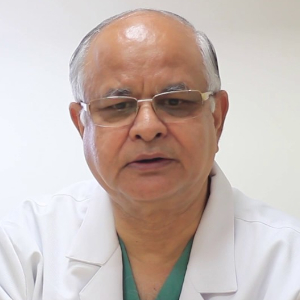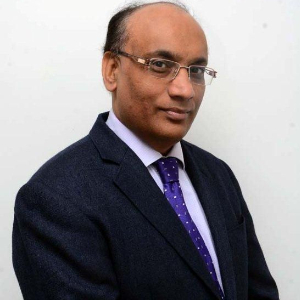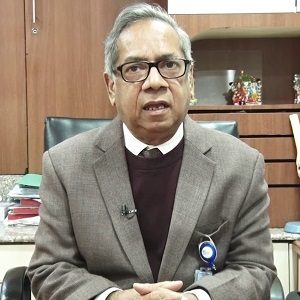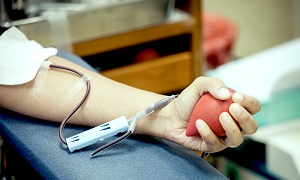Best Doctors in India for Hip Replacement
- Orthopedic surgeon, Chennai, India
- Over 35 years’ experience
- MGM Healthcare Chennai
Profile Highlights:
- Dr. A B Govindaraj is a leading Orthopedic surgeon who holds an extensive experience of more than 3 decades in the field and performs over 300 joint replacement surgeries annually.
- He excels in unilateral and bilateral total knee replacement, total hip replacement, and shoulder replacement surgeries.
- Orthopedic Surgeon, Hyderabad, India
- Over 30 years’ experience
- CARE Hospitals Hyderabad
Profile Highlights:
- Dr. B N Prasad is a well-known Orthopedic Surgeon with over 3 decades of experience.
- Dr. B N Prasad is among the few surgeons in the country to specialize in both adult and pediatric orthopedics and has taken up numerous cases and treated patients with excellent outcomes.
- He provides diagnostic as well as surgical treatment for various types of orthopedic disorders such as arthritis and osteoporosis.
- Orthopedic Surgeon, Gurugram, India
- Over 40 years’ experience
- Artemis Hospital, Gurgaon
Profile Highlights:
- Dr. B K Singh is one of the best Orthopedic Surgeons in India with experience encompassing over 4 decades.
- He holds the credit for over 5000 Arthroplasty procedures and is one of the few surgeons in India with expertise in Robotic Knee and Hip Replacement Surgeries.
- Dr. B K Singh received his training in Joint Replacement Surgery and Robotic Knee and Hip replacement procedures from India, UK, and Japan.
- Orthopedic Surgeon, Hyderabad, India
- Over 30 years’ experience
- Gleneagles Global Hospitals Hyderabad
Profile Highlights:
- Dr. J V S Vidya Sagar is a renowned Orthopedic Surgeon and one of the most experienced surgeons for Arthroscopy in India.
- Dr. Vidya Sagar has been performing Arthroscopic and Joint Replacement surgeries for over 30 years during which he has performed 31,500 Arthroscopies, 13,400 joint replacement surgeries, 27, 600 knee joint surgeries, and 20,800 surgeries for ligament reconstruction, and over 38,600 surgeries for cerebral palsy and polio.
- Top Orthopedic Surgeon | BLK Hospital, New Delhi, India
- 20+ Years Experience
- BLK Super Specialty Hospital, New Delhi
Profile Highlights:
- Dr. Mrinal Sharma is a highly renowned Orthopedic Surgeon and Joint Replacement Specialist with a specialization in Arthroplasty.
- Dr. Mrinal Sharma holds with him an experience of more than a decade and has achieved huge success with joint replacement procedures, especially of the knee, during his career.
- He is among the new generation of Orthopedic surgeons who use Computer Navigated techniques for performing knee and hip replacement surgeries.
- Orthopedic Surgeon, Mumbai, India
- Over 20 years’ experience
- Gleneagles Global Hospital Parel Mumbai
Profile Highlights:
- Dr. Murali Poduval is a well-known Orthopedic surgeon in Mumbai with a specialization in Joint Replacement surgeries.
- He holds an extensive experience of close to 2 decades in Orthopedics and Joint replacement surgery and is an expert in the management and treatment of deformity correction, arthroplasty, and complex trauma.
- He is highly skilled in performing all types of primary and revision surgeries on the hip, knee, and spine. His primary interest also includes hip arthroplasty for severe defects in children and adolescents.
- Top Orthopedic Surgeon & Spine Surgeon | BLK Hospital, New Delhi, India
- 40+ Years Experience
- BLK Super Specialty Hospital, New Delhi
Profile Highlights:
- Dr. Pradeep Sharma is the Director of the BLK-Max Centre for Orthopedics, Joint Reconstruction, and Spine Surgery in Delhi.
- Dr. Pradeep Sharma has an experience of 40+ years in the field and is an expert in the treatment of both adult and pediatric patients.
- Dr. Pradeep Sharma runs arthroplasty Fellowships supported by Zimmer and Stryker and has trained and mentored young surgeons in Arthroplasty.
- Orthopedic Surgeon, Kolkata, India
- Over 30 years’ experience
- CMRI (The Calcutta Medical Research Institute) Kolkata
Profile Highlights:
- Dr. Rakesh Rajput is the Director and HOD – Orthopedics at The Calcutta Medical Research Institute (CMRI), Kolkata.
- Dr. Rakesh Rajput’s expertise lies in Joint replacement surgeries for the knee and hip, Arthroscopy, and Pelvic and Ace tabular trauma. He is also highly skilled in Minimally invasive orthopedic surgeries.
- Dr. Rakesh Rajput received his training in Joint replacement procedure from the prestigious University of Dundee and has worked and trained under some of the best orthopedic surgeons in the world.
- Orthopaedic Surgeon, Chennai, India
- Over 22 years’ experience
- Apollo Hospitals Greams Road
Profile Highlights:
- Dr. Kornad P Kosygan is one of the few Orthopedic surgeons in India with a double FRCS degree.
- He has been successful in the diagnosis and treatment of severe Orthopedic problems throughout his career.
- Dr. Kornad is invited as an exclusive Orthopedics Specialist from over six countries in the Asian and European subcontinent.
- Dr. Kosygan has sought extensive training and exposure in the department of Orthopaedics.
- Top Orthopedic Surgeon | Apollo Hospitals, New Delhi, India
- 42+ Years Experience
- Indraprastha Apollo Hospital, New Delhi
Profile Highlights:
- As one of the most experienced orthopedic surgeons in Delhi, Dr. Chander Shekhar has been practicing for 42 years. He is associated with Indraprastha Apollo Hospital as a consultant.
- Dr. Chander Shekhar is interested in Knee and Hip joint replacement and revision.
- He honed his expertise by completing a fellowship in shoulder and knee arthroscopy in the United States. Besides replacement & revision surgery, he has expertise in Birmingham Hip Resurfacing, BHR with stem, and Minimally Invasive Surgery.
Best Hip Replacement Hospitals in India
Hospital Highlights:
- Apollo Hospitals is a private healthcare group in India, with its headquarters based in Chennai. Established in 1983 by Dr. Prathap C. Reddy, the group offers a wide range of medical treatments and services across various specialties.
- It is renowned for emphasizing innovation and utilizing cutting-edge medical technologies into patient treatment.
- Known as India’s first corporate hospital, Apollo Hospitals is often credited for pioneering the private healthcare revolution in the country.
- With clinics and hospitals located all throughout India, Apollo Hospitals is a nationwide healthcare organization. Its presence can also be found in foreign countries.
- Preventive health examinations, medical and surgical treatment, and diagnostic centres are just a few of the services that the Apollo group provides.
- The group has several centres of expertise, including Cardiac Sciences, Neurosciences, Orthopedics, Emergency Care, Cancer Care, and Organ Transplantation.
- City: Chennai, India
Hospital Highlights:
- RIMC is a multi-specialty hospital in a sprawling area of 36 acres located in Chromepet, Chennai, Tamil Nadu, India.
- The facility has 450 beds including 130 critical care beds, 9 operating rooms, modern reference laboratories and radiology services, and is conveniently located near road, rail and air transportation.
- RIMC is led and managed by world-renowned physicians committed to healthcare.
- RIMC offers the broadest range of clinical care, education, and research. The hospital offers state-of-the-art technology and modern treatment facilities designed to provide health care at an affordable cost.
- Rela Institute is driven by patient needs, comfort and confidence.
- City: New Delhi, India
Hospital Highlights:
- Fortis Hospital in Shalimar Bagh is a multi-super specialty hospital that strives to provide world-class patient care by leaving no stone unturned.
- Fortis, Shalimar Bagh, with 262 beds and a 7.34-acre footprint, provides the best level of medical care through its team of doctors, nurses, technicians, and management professionals.
- City: Bengaluru, India
Hospital Highlights:
- Established in 2007, the Apollo Hospitals Bangalore is a 300-bed multispecialty hospital situated in Bannerghatta Road, Bangalore.
- Equipped with the state-of-the-art technology, it is a leading hospital dedicated to providing healthcare needs to patients with compassion and expertise.
- It is the first hospital to have completed the highest number of Robot Assisted Heart Surgeries in India.
- Over the years, it has successfully conducted some of the rarest medical procedures such as spinal angiolipoma excision, autologous chondrocyte implantations, and tibial tuberosity shift with MPSL reconstruction.
- The Apollo Hospitals Bangalore has the reputation of performing the greatest series of airway stents in the country.
- Additionally, the hospital is known for providing comprehensive treatment in specialties such as gastroenterology, urology, gynecology, oncology, colorectal surgery, etc.
- The “The Minimal Access Surgery Centre” (MASC), one of Apollo Hospitals, Bangalore’s premier Centres of Excellence, is devoted to the use of minimally invasive surgical procedures.
- In 2013, THE WEEK-A C Nielsen, Best Hospital Survey ranked Apollo Hospitals Bangalore as the 2nd best multi-speciality hospital in Bangalore.
- City: Mumbai, India
Hospital Highlights:
- Gleneagles Global Hospital The 450-bed facility comprises of 17-stories, housing state-of-the-art infrastructure, and advanced medical care facilities.
- The hospital offers end-to-end clinical, surgical, and diagnostic services. It is equipped with a team of eminent medical professionals aided by qualified nurses and medical staff
- The Hospital offers advanced Endoscopic procedures, Hepatobiliary and Liver Surgeries, Surgical and Medical Gastroenterology, Bariatric Surgery, and Robotic surgery.
- The hospital is a center of excellence for Orthopedics, Joint Replacement, Knee Replacement, and Hip Replacement surgery.
- City: Hyderabad, India
Hospital Highlights:
- CARE Hospitals were established in the year 2000, by CARE Group.
- The multispecialty hospital has 435 beds, including 120 critical care beds, with an annual inflow of 180000 outpatients and 16,000 in-patients.
- The hospital provides specialty medical services in Cardiology, Cardiothoracic Surgery, Pediatric Cardiology, Pediatric Cardiothoracic Surgery, Neurology, Neurosurgery, Nephrology, and Urology.
- The hospital has the first dual source, 128 slice CT scanner (for high precision cardiac imaging) – the first of its kind in south India.
- The hospital offers a wide range of accommodation facilities for the convenience of its varied patient base, ranging from general wards to super deluxe rooms.
- City: Mumbai, India
Hospital Highlights:
- Fortis Hospital in Mulund is a 315-bed multi-speciality tertiary care hospital with five JCI accreditations that offers a wide variety of diagnostic and treatment services. The Fortis Hospital in Mulund delivers patient-centred treatment with cutting-edge technology, highly skilled and experienced surgeons, and paramedical staff.
- This institution houses Maharashtra’s largest multi-organ transplant centre. It is also the first heart transplant centre in western India to conduct 100 or more consecutive heart transplants in under four years. It is the only hospital in the city to have multi-organ transplants and has handled the youngest patient for angioplasty. Fortis Hospital Mulund now boasts the first advanced surgical robot in central Mumbai.
- Cardiology and heart surgery, urology, nephrology, neurosciences, orthopaedics, digestive care, emergency and critical care, and maternity care are among the services provided by the hospital.
- City: New Delhi, India
Hospital Highlights:
- Manipal Hospitals, Dwarka, is a super-specialty hospital in Dwarka, New Delhi, which is a part of Manipal Hospitals Group.
- The hospital aims to provide the best treatment on par with international standards at a fraction of the cost.
- Equipped with 380 beds, the hospital is also one of the new age hospitals which are equipped fully with state-of-the-art infrastructure, cutting-edge technology as well as the latest and advanced clinical practices. The hospital also has 13 modular Operation theatres with 118 beds which are solely meant for critical care.
- The hospital comprises internationally acclaimed doctors and highly professional and experienced hospital and medical staff who are able to provide preventive, therapeutic, and diagnostic services all under one roof.
- City: Chennai, India
Hospital Highlights:
- Located in Chennai, India, MGM Healthcare is a top multispecialty hospital that provides all medical services under one roof.
- Since its founding in 2019, MGM Healthcare has quickly become a leading national referral centre, creating several innovative flagship initiatives.
- MGM Healthcare combines next-generation medical and digital technologies to provide better patient results.
- With 12 centres of excellence, more than 400 inpatient beds, 100 intensive care unit beds, and 24/7 emergency care, MGM Healthcare leaves no chance in redefining the patient experience in Chennai.
- MGM Healthcare boasts 250+ expert doctors across 30+ departments, including Cardiology, Pulmonology, Neurology, Obstetrics & Gynaecology, and more.
- They house 12 specialized Centres of Excellence, including Neurosciences, Orthopaedics, and Multi-Organ Transplantation.
- Their team of doctors, nurses, and paramedics works together to give every patient individualized treatment.
Hospital Highlights:
- Lilavati Hospital & Research Centre is India’s premier multi-speciality tertiary care hospital and has been recognised as a global medical excellence centre.
- Lilavati Hospital & Research Centre has built an unrivalled level of trust with its patients over the years, thanks to a solid foundation that comprises cutting-edge facilities, the best medical competence, research, education, and charity endeavours.
- The hospital is quite proud of the fact that it now serves patients from all kinds of backgrounds, not just from the United States but from all around the world.
- The hospital has a total of 323 beds, one of the largest Intensive Care Units (ICUs), 12 Operation Theatres with modern amenities, over 300 consultants, and almost 1,800 personnel.
Total Hip Replacement
Total Hip Replacement is a surgical procedure prescribed for people suffering from a bad or damaged hip. In this surgical procedure, the doctor removes the entire hip joint and replaces it with an artificial hip joint usually made of high-quality metal or plastic elements.
A total hip replacement is suggested when all the other primary treatment methods have shown unsuccessful recovery. The primary goal of this surgery is to remove the bad hip joint in order to reduce pain and stiffness while improving hip joint flexibility amongst patients.
Causes of Hip Damage
The primary cause for damage in the hip joint is due to osteoarthritis, a condition the promotes cartilage loss in the hip joint. Apart from osteoarthritis, other causes for a total hip replacement can be:
- Rheumatoid Arthritis
- Post-traumatic Arthritis
- Osteonecrosis
- Fracture or dislocation of the hip joint/bone
- Childhood disorders
Indications for Total Hip Replacement
Usually, general pain and stiffness of the bone is not enough for doctors to recommend a total hip replacement surgery. However, based on your symptoms, doctors might consider the possibility and ask for some diagnostic tests to determine the underlying cause of these symptoms. Some of these symptoms include-
- Intense pain even after taking pain relief medication
- Inflammation of the hip joint due to cartilage loss
- Difficulty during walking
- Difficulty in general movement of the hip joint
- Insomnia due to discomfort or pain
- Stiffness or hip joint locking
Alternative method to Total Hip Replacement
There’s an alternative method to hip replacement, known as the Birmingham Hip Resurfacing Surgery. This procedure is generally suggested for patients falling under the young category, for instance from infants to patients ageing between 40-50. In this surgery, instead of replacing the entire hip joint, the doctors resurface or shaves the damaged part of the hip joint and adds an artificial brace to the joint. This allows free movement and flexibility along with reduced pain. Even though this procedure is more favored over total hip replacement, the final verdict will be disclosed by your orthopedic surgeon based on the damage caused to the hip bone along with your age, weight, general immunity strength and more.
Apart from the two surgical options, other primary non-operative treatment methods may include:
- Pain-relief medications
- Physiotherapy
- Joint supplements
- Weight loss and change in day-to-day activities
Diagnostic tests needed
When the primary treatment methods fail, the doctor may suggest some diagnostic tests to determine the underlying cause and based on the test results, the surgical method is decided. Initial tests include movement or other physical tests along with X-ray, MRI or EKG tests to determine whether the problem is bone-related or neurology-related. Apart from that, the doctor may ask you about running bone or arthritis disorders in your family along with your past medical history.
Total Hip Replacement procedure explained
Preparation
There are no exclusive preparation methods for this surgery. However, the general preparation includes fasting 10-12 hours before the surgery including a 24-72 hour break from alcohol or tobacco consumption strictly. Patients are requested to help the medical team out with a detailed list of past medical history including bleeding disorders, past or ongoing medications including blood thinners, pain relief medications, OTC, herbal supplements, vitamins and even homeopathy medications, and any ongoing allergies to particular medications. Your medical team will help you out with detailed dietary chart for the days leading up to the surgery day and if you’ve not received a chart, we recommend asking your healthcare providers for possible dietary regulations.
Blood Donation
Total Hip Replacement Surgery
The total hip replacement surgery can be conducted in either of the two ways:
- Traditional method or the open-surgery
- Minimally invasive method.
Even though the procedure for both the methods remains the same, the only notable difference is within the size of the incision. In the latter method, the incision is kept minimum and the post-operation care, wound healing, recovery, and pain is usually less compared to the traditional method.
THR procedure is done under general anesthesia.
Once the artificial joints are put in place, the doctor checks for any additional cartilage or bone damage and removes it. The hip muscles are then put back in place and the incision is sewed shut.
Steps of Surgery
Total hip replacement is two-step surgery:
Step 1: The doctor makes an incision in the hip area and moves the hip muscles out of the way to reveal the hip joint. The ball of the joint connected to the femur is then shaved off and an artificial joint replaces the area. The artificial joint is usually made up of stems inserted and attached to the femur bone with the ball part sticking out.
Step 2: Now the doctor preps the hip bone socket removing any damaged cartilage or bone from the area. The artificial joint cup is inserted into the socket and the artificial joint attached to the femur bone is then fixed into the socket. An additional drain may be created to drain out the excess fluid accumulation in that region.
Once the artificial joints are put in place, the doctor checks for any additional cartilage or bone damage and removes it. The hip muscles are then put back in place and the incision is sewed shut.
Blood Transfusion
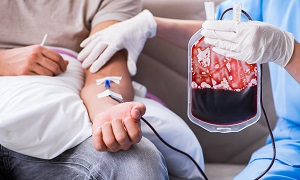
Since this surgical procedure may result in a lot of blood loss, doctors based on the patient’s blood loss rate might recommend a blood transfusion after the surgery.
Probable risks of Total Hip Replacement Procedure
Common risks or complications of the surgery include
- Infection
- Body’s reaction to the foreign artificial joints
- Breaking or fracturing of bones during the procedure
- Blood clots or bleeding disorder
- Artificial joint dislocation or loosening
- Metal on metal complications
One of the side-effects to total hip replacement may include shortening of one the limbs causing a change in leg length.
Post-operation care
What you can expect after your hip replacement surgery:
- Physical therapy will start after the day of the operation
- Patients will be given walkers or crutches to walk a few days after the surgery
- Patients will be requested to use a pillow or cushion in between the knees for the initial days to hold the artificial joints into position
- The incision stitches or staples will be cleared in the follow-up visit, usually, 2 weeks from the day of the surgery. However, the wound needs to be duly taken care of. Patients are requested to change the wound dressing every day to keep it clean and dry. Please do not put water, cream, ointments, or lotions on the wound without doctor approvals. Patients can return to their normal life within 3-6 weeks of the surgery. However, rotating or twisting of the hip joints is strictly prohibited for 6-1 months. Doctors advise patients to continue with physiotherapy as requested.
FAQs
How long will the hospital stay be for total hip replacement surgery?
The usual hospital stay for the hip replacement surgery is for 4-6 days but based on the patient’s recovery status or progress, the doctors might extend the hospital stay for better monitoring or management.
Can my hip replacement surgery fail?
Sometimes the artificial joints may fall out of place or get loose due to wear and tear or certain bone related complications might make it difficult, but in most, cases hip replacement surgeries have been successful.
What happens if the surgery fails?
In case your hip replacement surgery fails, based on your condition and your body’s reaction to the surgery, doctors might prescribe a second replacement surgery.
Can I climb stairs after the surgery?
Activities such as sitting on the floor or climbing stairs should be kept to minimum after the surgery.
Why do I feel pain even after the surgery?
It is normal to feel pain after a hip replacement surgery. However, the pain is limited to the initial days only, especially, during or after physiotherapy. If the pain persists even after the first 3 weeks, kindly contact your doctor.
Will my hip replacement surgery last forever?
Usually, hip replacements last for a good 10-12 years or more based on usage but wear and tear of the joint or loosening of the artificial joint might reduce the years.

